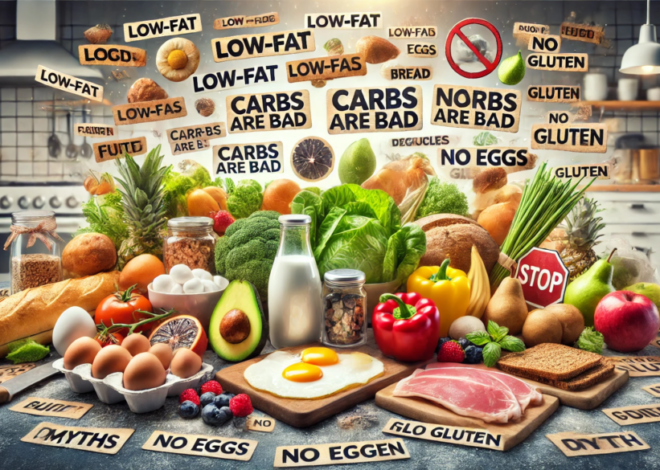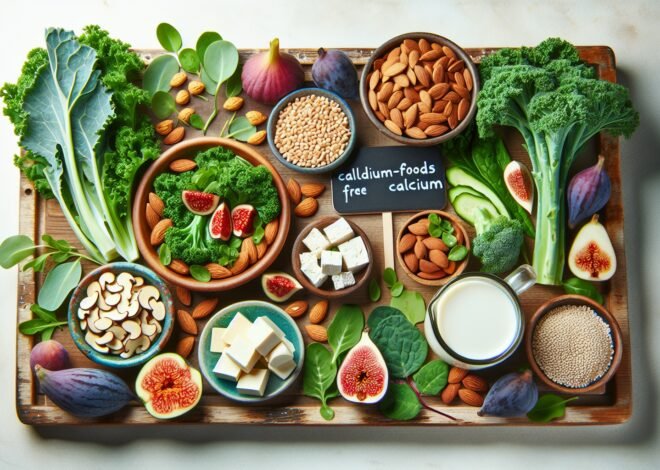
How to Plan Balanced Meals for Busy Weekdays
Balanced meals for busy weekdays can seem daunting, yet maintaining them is crucial for health and energy. A common misconception suggests fast food is the only solution when time is tight, while studies show planning can make nutritious eating achievable. This guide offers strategic meal planning tips, easy-to-follow recipes, and efficient food prep techniques to ease your weekday rush. Streamlining your grocery shopping and cooking methods minimizes stress and maximizes nutrition. Explore how a bit of planning can transform your weekday meals into balanced, satisfying options that support your vibrant lifestyle.
Understanding the Basics of Balanced Meals
Balanced meals are the cornerstone of a healthy lifestyle. They provide the nutrients our bodies need to function optimally. In this section, we’ll explore what makes a meal balanced, the importance of macronutrients and micronutrients, and how portion control contributes to a nutritious diet.
What Constitutes a Nutritionally Balanced Meal?
A nutritionally balanced meal includes a variety of food groups. These meals provide essential nutrients, including protein, carbohydrates, and fats. Each component plays a unique role in supporting health. Proteins help build and repair tissues. Carbohydrates are a primary energy source, while fats support cell growth and protect organs.
Include fruits and vegetables for vitamins, minerals, and fiber. Whole grains offer sustained energy and fiber for digestive health. Incorporating lean proteins, such as chicken or tofu, ensures adequate amino acids. Healthy fats, found in avocados and nuts, support brain function and hormone production.
Achieving balance means consuming a variety of foods. This diversity ensures nutrient intake meets daily requirements. Aim for colorful plates with different textures and flavors. This approach not only satisfies nutritional needs but also enhances the dining experience.
Importance of Macronutrients and Micronutrients
Macronutrients and micronutrients are crucial for health. Macronutrients include carbohydrates, proteins, and fats, providing energy and supporting growth. Each macronutrient has specific roles, making them equally important.
Carbohydrates are the body’s preferred energy source. Choose complex carbs like whole grains for sustained energy. Proteins are vital for muscle repair and enzyme production. Opt for lean meats, beans, and legumes. Fats are necessary for absorbing fat-soluble vitamins and hormone regulation. Prioritize unsaturated fats found in fish and oils.
Micronutrients, though needed in smaller amounts, are no less important. Vitamins and minerals like Vitamin C, calcium, and iron support immune function, bone health, and oxygen transportation. A varied diet rich in fruits, vegetables, dairy, and whole grains meets these requirements.
The Role of Portion Control in Balanced Diets
Portion control is essential for maintaining a balanced diet. It helps regulate calorie intake and prevents overeating. Understanding portion sizes ensures adequate nutrient intake without excess calories.
Use measuring tools or visual cues to manage portions. A balanced plate is half vegetables, a quarter protein, and a quarter carbohydrates. This distribution supports nutrient density and satiety.
Smaller, frequent meals can aid in portion control. This approach maintains energy levels and prevents hunger-driven overeating. Mindful eating encourages awareness of hunger cues, promoting better portion management.
Time-Saving Meal Planning Strategies for Busy Individuals
In today’s fast-paced world, finding time to prepare healthy meals can be challenging. With effective meal planning, you can enjoy nutritious meals without the stress. This section will guide you through weekly meal planning, quick prep techniques, and the benefits of batch cooking.
How to Create a Weekly Meal Plan
Creating a weekly meal plan begins with assessing your schedule. Identify busy days and allocate time for meal prep. Planning meals in advance reduces stress and saves time.
- Choose recipes that share ingredients to minimize waste.
- Include a variety of proteins, grains, and vegetables for balance.
- Consider dietary preferences and nutritional needs when selecting recipes.
Shopping with a list based on your plan prevents impulse buys. This strategy ensures you have all necessary ingredients, reducing last-minute grocery trips.
Quick Prep and Cook Techniques for Nutritious Meals
Efficiency in the kitchen is key for busy individuals. Quick prep techniques streamline the cooking process while maintaining nutrition.
- Utilize pre-cut vegetables to save chopping time.
- Invest in tools like slow cookers or instant pots for hands-free cooking.
- Embrace simple recipes with minimal ingredients for quick assembly.
Focus on one-pot meals that require less cleanup. These meals combine proteins, vegetables, and grains in a single dish, offering balanced nutrition with convenience.
Utilizing Meal Prep and Batch Cooking for Convenience
Meal prep and batch cooking are powerful tools for managing time and maintaining a healthy diet. By preparing ingredients or entire meals in advance, you can enjoy home-cooked meals with minimal effort.
Set aside time weekly to cook large batches of staples like grains, proteins, and roasted vegetables. These can be combined in various ways to create diverse meals throughout the week.
Store prepped ingredients in clear containers for easy access. Label containers with contents and dates to maintain freshness and organization.
Easy and Healthy Recipe Ideas for Weeknight Dinners
Weeknight dinners don’t have to be complicated to be healthy. With the right recipes, you can create delicious, balanced meals quickly. This section offers easy recipes, minimal cleanup options, and tips for using seasonal ingredients.
30-Minute Balanced Meal Recipes
Short on time but craving a nutritious meal? These 30-minute recipes are perfect for busy nights. With a focus on balance, they offer proteins, veggies, and grains in every bite.
- Grilled chicken with quinoa and steamed broccoli.
- Stir-fried tofu with mixed vegetables and brown rice.
- Salmon with a side of sweet potatoes and spinach salad.
These dishes are straightforward yet satisfying, providing essential nutrients without lengthy preparation.
One-Pot and Sheet Pan Dinners for Minimal Cleanup
One-pot and sheet pan dinners are lifesavers for reducing cleanup time. These methods combine ingredients in a single dish, offering full meals with fewer dishes.
- Sheet pan fajitas with chicken, peppers, and onions.
- One-pot pasta with spinach, tomatoes, and garlic.
- Baked fish with seasonal vegetables on a single tray.
These meals are not only easy to make but also burst with flavors and nutrients, making them ideal for weeknight dinners.
Incorporating Seasonal Ingredients for Nutrient-Rich Meals
Using seasonal ingredients enhances the flavor and nutritional value of your meals. Fresh produce at its peak is often more affordable and environmentally friendly.
- Spring: Asparagus and peas in a light pasta dish.
- Summer: Grilled zucchini and corn salads.
- Fall: Roasted pumpkin soup with sage.
- Winter: Root vegetable stews with hearty grains.
Incorporating seasonal produce not only supports local farmers but also adds variety to your diet, ensuring a well-rounded intake of nutrients year-round.
Conclusion
The article offers practical strategies for creating balanced meals during busy weekdays. It emphasizes the importance of meal planning and preparation in advance to save time. Quick and nutritious recipes are suggested, focusing on lean proteins, whole grains, and vegetables. The article also highlights the benefits of batch cooking and utilizing leftovers effectively. Tips for incorporating healthy snacks into daily routines are included to maintain energy levels.
FAQ
How can I plan balanced meals for a busy workweek?
Start by creating a weekly meal plan that incorporates a variety of proteins, vegetables, and whole grains. Batch cooking on weekends can streamline your weekdays. Use a shopping list to ensure you have all necessary ingredients, minimizing mid-week grocery runs.
What are some quick and healthy meal prep ideas for weekdays?
Consider preparing overnight oats for breakfast, salads in jars for lunch, and stir-fried vegetables with quinoa for dinner. These options are not only nutritious but also allow for quick assembly, saving precious time during the week.
How do I ensure nutritional balance in my weekday meals on a tight schedule?
Focus on including a protein source, a healthy fat, and plenty of vegetables in every meal. Keep healthy snacks like nuts or fruits handy to prevent unhealthy snacking. Pre-prepared smoothie bags are also a great option for a nutrient boost on the go.
What time-saving tips can help me prepare healthy meals during the week?
Utilize appliances like slow cookers or instant pots to reduce cooking time. Double or triple recipes and freeze portions for future use. Cutting and pre-washing vegetables ahead can also cut down on meal prep time.
How can I incorporate variety in balanced meals for a hectic weekly routine?
Rotate different proteins, such as chicken, tofu, and fish, throughout the week. Experiment with various spices and herbs to enhance flavors without extra calories. Trying international cuisines can keep meals exciting and diverse.
What are effective strategies for preparing balanced meals when time is limited?
Prioritize meals that require minimal cooking, like wraps or grain bowls. Use pre-cut vegetables and canned beans to reduce prep time. Planning leftovers for lunch can save both time and money while maintaining nutritional balance.











